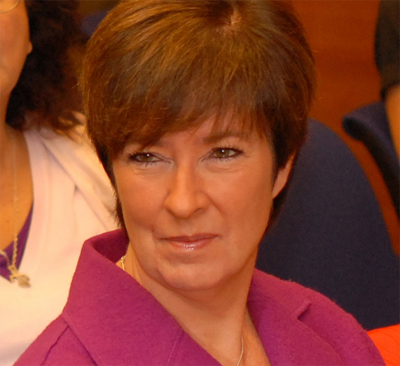Of Toblerones and cojones

As a new year of political guff and spoofery dawns, we should forget Swedish-style taxes or childcare – what Ireland really needs is Swedish-style politicians. By Philip O'Connor.
2012 in Irish politics began as Ivor Callelly was arrested over false mobile phone receipts. As it went on Mick Wallace was found to have welched on VAT payments, and the name of Michael Lowry was never too far from the headlines.
All of these incidents were just the cherries on the usual pile of lies offered up by Irish politicians throughout the year, with the avid kite-flyers of the Government almost bettered by the opposition spivs that bankrupted the country and now crow about it.
Indeed, every time some sharp-suited spiv is spotted with his hand in the government expenses cookie jar, I’m reminded of what is quaintly known as “the Toblerone Affair” here in Sweden.
Back in 1995 Mona Sahlin was the star of Sweden’s Social Democrats – vice prime minister at the time, she was widely tipped to replace Ingvar Carlsson as party leader and become the first female leader of the Scandinavian nation.
But then newspaper Expressen reported that she had used a government-issued bank card to pay around €6000 worth of private expenses – including for two Toblerones, which gave the scandal its name.
Many expenses, such as restaurant visits, had to be paid for in cash in Sweden at that time, and money to cover them was taken out at an ATM.
In practice, whatever was left over was essentially an advance on the next salary payment.
Sahlin’s problem was twofold; firstly, use of the card for private expenses was strictly prohibited.
Secondly, a bit of journalistic digging showed that she was generally careless with her personal finances, with a slew of unpaid parking fines and under-the-table payments to childcare workers being two incidents that stuck out.

The judgement of the court of public opinion was as swift as it was merciless. On 14 October 1995 newspaper Göteborgsposten published an opinion poll in which 66% of the respondents said that Sahlin was unfit to lead the country.
Two days later Sahlin took a “time-out”, removing herself from the race to succeed Carlsson and thus become prime minister.
On 16 October a criminal investigation began, but Sahlin didn’t wait around for the outcome – on 10 November she resigned, her career in ruins.
In January 1996 the criminal investigation was closed as no crime could be detected. Sahlin eventually paid back all monies owed, plus around €1800 extra, but by then it didn’t matter.
The Swedish people demand standards in public office, and Mona Sahlin had not met those standards. She was gone.
The story doesn’t end there; for the next ten years, Sahlin wandered the political wilderness before finally getting her chance to lead the party following the loss of the 2006 general election and Göran Persson’s subsequent resignation as party leader.
But her dream of being Sweden’s first female prime minister was to remain unrealised.
The electorate in Sweden neither forgives nor forgets in a hurry, and Sahlin and the Social Democrats were narrowly defeated in 2010.
I covered the election night for a major news agency, and many in her party suggested that, with a different leader, the centre-left coalition would have won the election – but many swing voters in the centre felt they couldn’t get behind Sahlin because of her Toblerones.
To Sweden’s credit, from the moment Sahlin’s creative cashflow solution was unveiled, her fate was sealed. This is less certain in Ireland, where the likes of Seán Quinn and Michael Lowry are often regarded as local heroes, rather than greedy opportunists.
Remarkably, Fianna Fáil showed signs of learning the lessons of the likes of Sahlin at the last election – faced with a country full of voters that would never elect many of them again, many of their sitting TDs simply chickened out and didn’t contest the election.
The chickening-out of Fianna Fáil represents the green shoots of Irish democracy. It shows that we can and will tell politicians when they have done wrong, and that we will not elect them again if they do so. It just takes a lot for us to get to that point.
It’s time to show some cojones and raise the bar in public life considerably – no more fraud, no more lies, no more deliberately misleading the public.
Having been put into €78 billion of debt without our say-so, the least the people that put us there can do is be straight with us – and not steal any more from us.
It may take time, but fewer Toblerones and higher standards shouldn’t unduly hurt our elected representatives. Only when we adopt Swedish-style standards in public office can we aspire to the childcare and other positive social supports that go with them.
Image top: andygeek.
Image centre - Mona Sahlin: Socialdemokrater.
